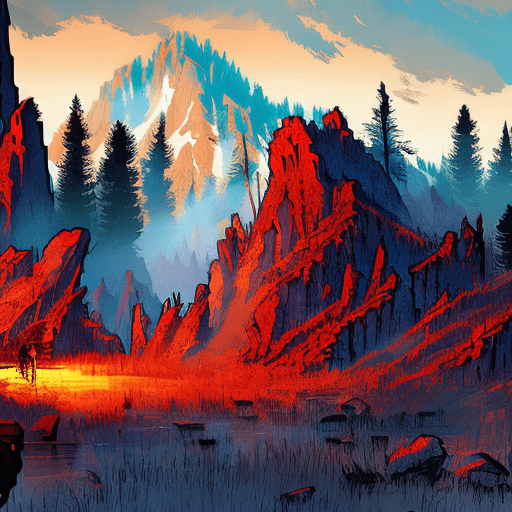One-line Summary:
A young Harvard dropout joins a buffalo hunting expedition in the 1870s, only to find himself facing the harsh realities of the American West.
The Journey Begins: A Quest for Adventure
In “Butcher’s Crossing” by John Williams, the story follows the journey of Will Andrews, a young man who leaves the comforts of Harvard in search of adventure and meaning in the untamed American West. Arriving in the small Kansas town of Butcher’s Crossing, Will meets Miller, a seasoned buffalo hunter, who convinces him to join an expedition to the Colorado Rockies in pursuit of a vast buffalo herd.
With dreams of experiencing the freedom and excitement of the frontier, Will eagerly joins Miller, Charley Hoge, a skinner, and Schneider, a cook, on their perilous journey. As they venture deeper into the wilderness, the group faces numerous challenges, including treacherous terrain, harsh weather conditions, and the constant threat of Native American attacks.
The Brutal Reality of the West
As the expedition progresses, the hunters encounter the immense buffalo herd they sought, but the true nature of their endeavor becomes apparent. Williams vividly portrays the brutal reality of buffalo hunting during the 1870s, where the animals are mercilessly slaughtered for their hides, leaving their carcasses to rot on the prairie.
The once idealistic Will is forced to confront the harsh consequences of his actions, as the expedition becomes a battle for survival. The hunters face starvation, dehydration, and the psychological toll of their relentless pursuit. The unforgiving landscape and the weight of their own guilt begin to take their toll on the men, leading to tension and conflict within the group.
A Journey of Self-Discovery
As Will witnesses the destruction of the buffalo and the toll it takes on the hunters, he undergoes a profound transformation. The naive young man who sought adventure and purpose in the West is confronted with the harsh reality of his own desires and the consequences of his actions.
Through his experiences, Will grapples with themes of greed, morality, and the destructive nature of human ambition. He questions the value of progress and the cost of pursuing one’s dreams at the expense of the natural world. Will’s journey becomes a metaphorical exploration of self-discovery and the search for meaning in a world driven by exploitation and destruction.
Key Takeaways:
- The pursuit of adventure and dreams can come at a great cost.
- The destructive consequences of human ambition and greed.
- The importance of questioning societal norms and the impact of progress.
- The transformative power of nature and the wilderness.
“He had come to that moment in his age when there occurred to him, with increasing intensity, a question of such overwhelming simplicity that he had no means to face it. He found himself wondering if his life were worth the living; if it had ever been.” – John Williams
In “Butcher’s Crossing,” John Williams paints a vivid and haunting portrait of the American West, exploring themes of adventure, greed, and the destructive nature of human ambition. Through the eyes of Will Andrews, readers are taken on a journey that challenges their perceptions of the frontier and forces them to confront the consequences of their own desires. Williams’ powerful storytelling and evocative prose make “Butcher’s Crossing” a compelling and thought-provoking read.












